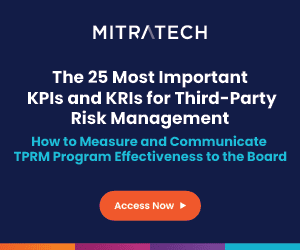As the world becomes more and more globalized by the day, the importance of maintaining it in mint condition has gained awareness from all actors in society. A responsibility to conduct business in a sustainable and value-oriented manner has been vested on businesses by international actors – one of the leading actors being the United Nations Global Compact Initiative (UNGC). The UNGC has focused on four main areas in which businesses are to fulfill fundamental responsibilities for maintaining sustainable operations: human rights, labor, environment and anti-corruption[1].
However, guidelines, principles and other international standards or documents are not per se binding on businesses. In other words, “binding” sanctions cannot be enforced on businesses directly by the relevant international organization in case of violations. Therefore, these guidelines, principles, standards or documents are referred to as “soft laws.” Within this context, some “soft laws” have become enforceable “hard laws” in instances when national regulators have adopted national laws governing the areas of the said documents. In this sense, the fundamental aspects of the principles foreseen by UNGC have been regulated to a certain extent by a majority of national regulators, whereby the underlying principles are also emerging worldwide. Nevertheless, national laws and “standalone” sanctions foreseen thereunder are not enough to provide for sustainability in the operation of businesses; in order to create a long-term sustainable corporate culture, businesses also need to take a stand and adopt internal procedures through corporate compliance programs. For example, in the area of human rights and labor standards, regulators have provided for protection regarding present violations. However, in order to create a long-term “sustainable” business, these principles should be institutionalized by businesses and values should be incorporated into corporate compliance programs.
It should be noted that the underlying principles of UNGC run side by side with the United Nations Sustainable Development Goals (SDGs)[2]. A sustainable business model is also that which contributes to realizing the SDGs. However, needless to deny, the ultimate purpose of a business is to maximize profit. Therefore, it is more efficient for businesses to contribute to realizing SDGs that work hand in hand with their commercial operations instead of those distinct ones. Within this context, I would like to emphasize that, especially in terms of environmental responsibilities, contributing to SDGs should not only mean refraining from harming the environment; businesses should adopt a proactive approach to solving environmental problems.
A business is not truly sustainable unless all its operations, subsidiaries, affiliates and especially those parties involved in the supply chain have adopted a sustainable management model. If multinational businesses ensure that affiliates, subsidiaries and members of the supply chain are sustainable businesses, I believe that these multinational operations will create a positive impact not only in a part of society where they operate, but also throughout the globe, especially in countries where human rights, labor and anti-corruption are still a major problem. In order to ensure that multinational operations are engaging in business with sustainable parties, they should implement internal guidelines and draft tailor-made checklists for the specific sphere of activity.
Although underestimated at times, business ethics is also an integral part of creating a sustainable corporate environment. Business ethics primarily implies to those moral values that are not necessarily regulated, but nonetheless should be adhered to while conducting business. Although business ethics consists of principles of human rights that have been regulated, such as non-discrimination or prohibition of child labor, it also consists of non-regulated values, such as integrity, loyalty, respectfulness and being fair. As regards leadership in businesses, business ethics also means accountability or, in other words, holding oneself responsible for one’s actions. This virtue of business ethics is essentially important for maintaining a sound corporate environment.
However, in order to maintain an ethical corporate environment, there are also some responsibilities vested on employees. While a business should empower its employees and contribute to their professional development, the employee should also contribute to the business in a meaningful way and should bring out his/her full potential at work. To this extent, internal human resource policies that seriously take concrete steps for personal assessment and career development starting from the hiring process is the crucial element in creating a sustainable positive corporate environment.
Overall, in order to create and maintain a sustainable business practice, the main role is vested on the leadership of a business. Only when the leadership is engaged in the process and internalizes it through concrete actions and sends out the right message, a shift in the corporate environment will be from within, and thus sustainable.
Although they may be perfect on paper, at times compliance programs lack effectiveness. One of the solutions for overcoming this obstacle is to enlist key employees in each function of the businesses. These key employees are like pieces of a puzzle and, when put together, the full picture can be overseen by the leadership.
Another crucial aspect for effective implementation of compliance programs is corporate accountability. Within this context, when there is a violation of a hard law, businesses or executives are held accountable by laws; however, as regards soft laws, providing for corporate accountability is in the discretion of businesses.
In my opinion, the ultra vires doctrine may serve for ensuring corporate sustainability. If the ultra vires doctrine was to revive and was used for sanctioning corporate violations using corporate law instruments, especially through shareholder activism, sustainable goals would be implemented effectively. Also, within this framework, activities of foreign operations of businesses where the UNGC principles have not been nationally regulated may be monitored to a certain extent.
In this sense, I would go as far as to interpret the ultra vires doctrine in a progressive manner and design the articles of incorporation in such a manner that activities that directly or apparently have a detrimental effect on the SDGs could be considered ultra vires. Also, the signature and endorsement of codes of conduct by especially top-level executives could create sound business ethics in the corporate environment[3].
Above all, reviving the ultra vires doctrine and a progressive interpretation thereto will allow for legal claims arising from corporate law to be exercised against executives that have a power to represent the businesses and, consequently, this will ensure that businesses are sound and sustainable.
Finally, maintaining a sustainable business model will have many positive consequences in practice; mainly, reputational risk will be low, along with the number of lawsuits, as when there are sound sustainable business decisions in place, violations and thus claims for damages tend to diminish. Ultimately, an effective sustainable business practice will set an example or even leave a lasting mark and be considered a benchmark for all other businesses.
[1] UNGC guide for conducting sustainable business: https://www.unglobalcompact.org/docs/publications/UN_Global_Compact_Guide_to_Corporate_Sustainability.pdf
[2] https://sustainabledevelopment.un.org/sdgs.
[3] http://complianceandethics.org/decade-long-dilemma-business-ethics/



 Gizem Alper is a corporate lawyer registered to the Istanbul Bar Association. She is currently a visiting scholar at The New School, Milano School of International Affairs, Management and Urban Policy in NYC. Gizem holds a Ph.D. Law from Istanbul University and an LL.M. from Leiden University and has amassed extensive experience in corporate and transactional law and compliance with multinational companies and in the banking industry.
Gizem Alper is a corporate lawyer registered to the Istanbul Bar Association. She is currently a visiting scholar at The New School, Milano School of International Affairs, Management and Urban Policy in NYC. Gizem holds a Ph.D. Law from Istanbul University and an LL.M. from Leiden University and has amassed extensive experience in corporate and transactional law and compliance with multinational companies and in the banking industry. 




